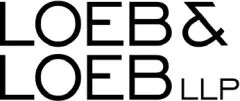- within Food, Drugs, Healthcare and Life Sciences topic(s)
- with Senior Company Executives, HR and Inhouse Counsel
- in Australia
- with readers working within the Consumer Industries, Technology and Retail & Leisure industries
Extended Producer Responsibility is no longer just a policy trend abroad—it is now taking hold in the U.S. These laws place the obligation for recycling and recovery costs not on consumers or governments, but on the companies that put packaging, printed paper and food serviceware into the marketplace. In practical terms, that means brand owners—and in some cases the agencies or suppliers acting on their behalf—are being defined as the "producer" responsible for compliance.
EPR compliance generally requires producers to register with a state-approved Producer Responsibility Organization (PRO) such as the Circular Action Alliance, report the types and amounts of covered materials they distribute into a state and pay fees based on that data. Those fees fund statewide recycling and waste management systems. While the details vary by state, the steps are similar: register with the PRO, sign participation agreements, submit data reports and pay invoices once assessments are made.
Covered products typically include packaging, printed paper, and food serviceware or service packaging. Some businesses—such as nonprofits or those with very small sales volumes—may qualify for exemptions, but the thresholds are narrow and need to be reviewed carefully. For most companies, compliance will mean building the ability to track packaging and printed material by category and weight for each state where EPR applies.
Several states now have active EPR laws. Oregon and Colorado programs are underway, California is launching soon and other states are advancing legislation to follow. The trend is clear: more states are expected to adopt similar laws in the near future.
For businesses, the takeaway is simple. EPR is here now. Companies producing or distributing packaging, printed paper or food serviceware should confirm whether they are considered a producer, evaluate exemptions and prepare to register, report and pay fees through the Circular Action Alliance. Taking steps early will minimize disruption and ensure compliance as these programs expand nationwide.
The content of this article is intended to provide a general guide to the subject matter. Specialist advice should be sought about your specific circumstances.


